22 Jun 2022 | Magazine, Magazine Editions, Volume 51.02 Summer 2022
In the summer 2022 issue of Index on Censorship, people across the spectrum talk about the corrosive effect of the war in Ukraine on freedoms. Viktoria Sedult, a journalist in Hungary, writes about how Europe’s most right-wing leader, Prime Minister Viktor Orbán, used fears of being embroiled in the war to secure a resounding electoral victory. Hanna Komar, an activist from Belarus, tells how she is desperately trying to challenge her parents on the lies they see on their TV. We give space to Ukrainian writers and artists, with a moving essay from Andrey Kurkov on how today, as in the past, Russia is trying to erase Ukraine’s culture, and a discussion with the poet Lyuba Yumichuk on children in Donbas being fed an alternative history. We publish the court statement from student journalist Alla Gutnikova, one of the Doxa Four sentenced to two years’ “correctional labour” in April, alongside an interview with her. Ilya Matveev, a Russian academic, writes about the incredibly difficult environment in his St Petersburg classroom, which eventually led him to flee. And we spotlight the amazing ways people are fighting back.
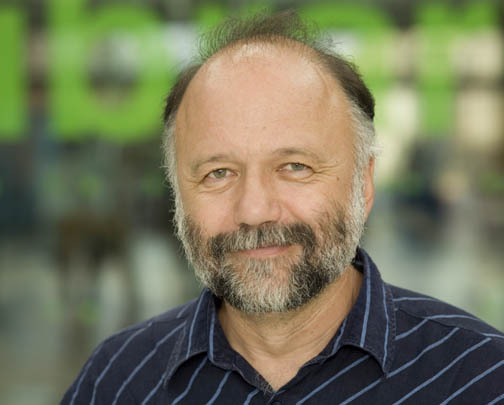
Author
Andrey Kurkov is an Ukrainian author who has written about 20 documentary, fiction and TV movie scripts and also 19 novels, including the bestseller Death and the Penguin. Read More
Author
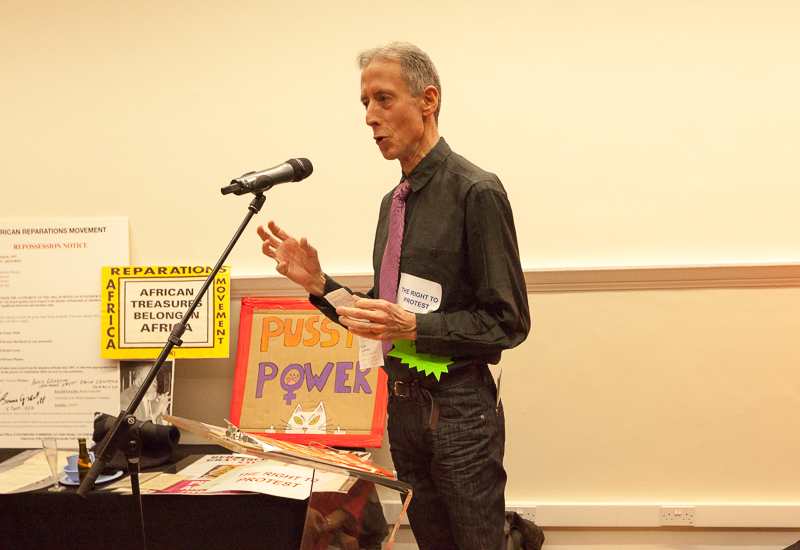
Human rights campaigner
Peter Tatchell is the director of human rights organisation the Peter Tatchell Foundation and highly acknowledged for his work with the LGBT movement.
Human rights campaigner
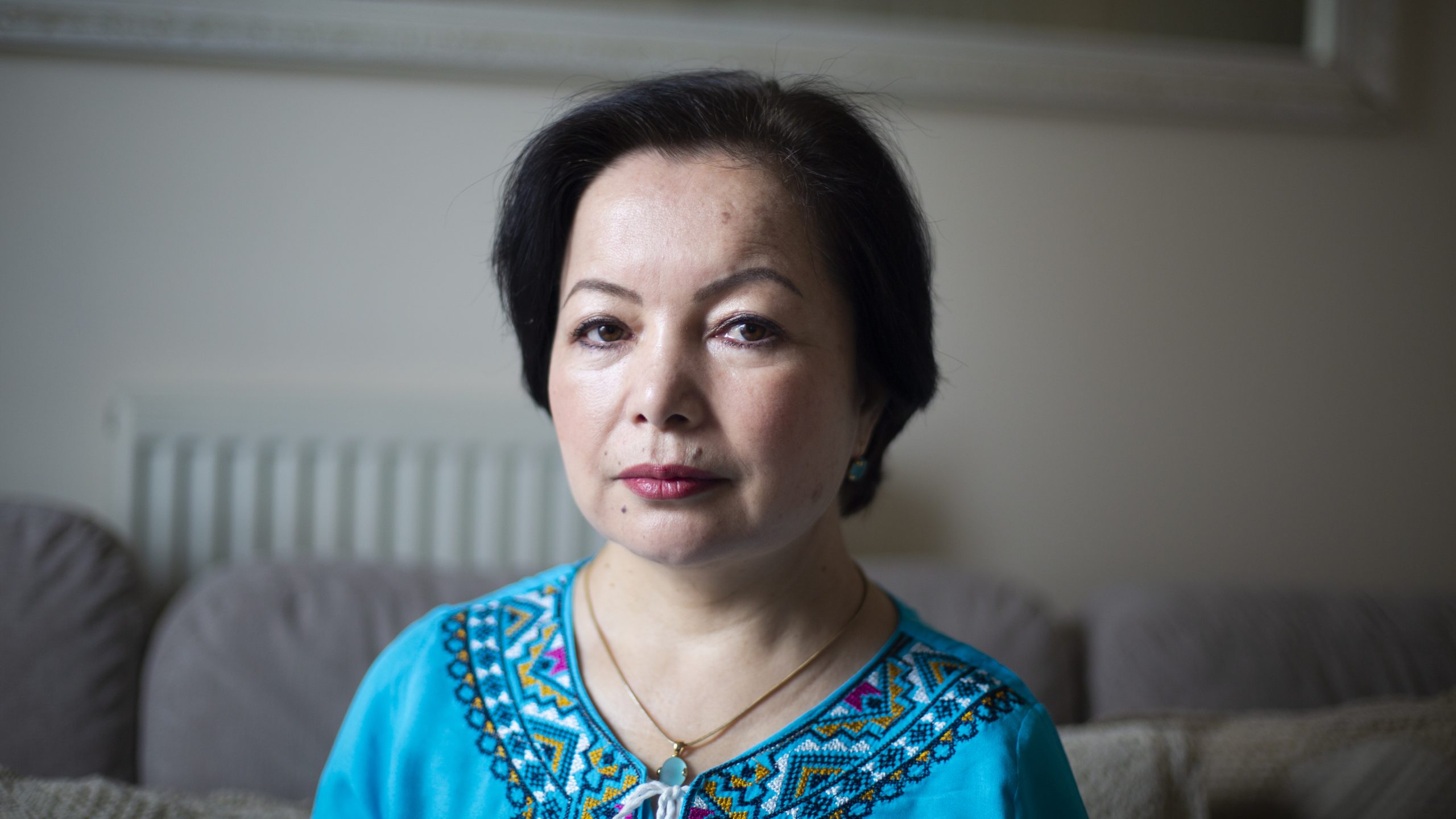
Artist and Activist
Rahima Mahmut is the director of the World Uyghur Congress (UK) and Adviser to the Inter-Parliamentary Alliance on China.
Artist and Activist
by Index on Censorship | 22 Jun 22 | Afghanistan, Africa, Americas, Asia and Pacific, Belarus, China, Europe and Central Asia, European Union, Hungary, India, Kenya, Magazine, Magazine Contents, Philippines, Poland, Russia, Turkey, Ukraine, United Kingdom, United States, Volume 51.02 Summer 2022 Extras | 0 Comments
The summer issue of Index magazine concentrated its efforts on the developing situation between Russia and Ukraine and consequential effects around Europe and the world. We decided to give voice to journalists, artists and dissidents who chose to respond to this...
22 Jun 2022 | Events
Join Index on Censorship and Pushkin House for a night discussing freedom of expression in Russia as part of the launch of the latest issue of Index on Censorship magazine.
The 2022 summer magazine looks at how the Russian invasion in Ukraine impacts freedoms within Ukraine and across Europe, Turkey and Russia. While the pages are filled with stories of brave and brilliant people speaking up and out, many write on the growing challenges for freedom of expression. This is especially the case for those living in Russia under Vladimir Putin. This will be the topic of our discussion for the launch.
Featuring a panel of people with direct experience and knowledge of Russia under Putin, the evening will address how much freedom there is in Russia right now, particularly in relation to media freedom and protest.
The panel will include Russian investigative journalists Andrei Soldatov and Irina Borogan, as well as Ben Noble, Associate Professor in Russian Politics at University College London. The conversation will be chaired by Index on Censorship magazine Editor-In-Chief Jemimah Steinfeld. The event will also include a reading of a passage written by the late Russian journalist Anna Politkovskaya, who was murdered in Moscow in 2006.
A wine reception will follow.
This event is free, but seats are limited. Advanced booking is essential. Register for your ticket here.
MEET THE SPEAKERS
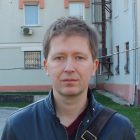 Andrei Soldatov is a Russian investigative journalist, co-founder, and editor of Agentura.ru, a watchdog of the Russian secret services’ activities.
Andrei Soldatov is a Russian investigative journalist, co-founder, and editor of Agentura.ru, a watchdog of the Russian secret services’ activities.
He is co-author with Irina Borogan of The New Nobility. The Restoration of Russia’s Security State and the Enduring Legacy of the KGB (PublicAffairs, 2010), The Red Web: The Struggle Between Russia’s Digital Dictators and the New Online Revolutionaries (PublicAffairs, 2015) and The Compatriots: The Brutal and Chaotic History of Russia's Exiles, Émigrés, and Agents Abroad (PublicAffairs, 2019).
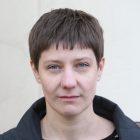 Irina Borogan is a Russian investigative journalist, co-founder and deputy editor of Agentura.ru, a watchdog of the Russian secret services’ activities. She chronicled the Kremlin's campaign to gain control of civil society and strengthen the government's police services under the pretext of fighting extremism.
Irina Borogan is a Russian investigative journalist, co-founder and deputy editor of Agentura.ru, a watchdog of the Russian secret services’ activities. She chronicled the Kremlin's campaign to gain control of civil society and strengthen the government's police services under the pretext of fighting extremism.
She is co-author with Andrei Soldatov of The New Nobility. The Restoration of Russia’s Security State and the Enduring Legacy of the KGB (PublicAffairs, 2010), The Red Web: The Struggle Between Russia’s Digital Dictators and the New Online Revolutionaries (PublicAffairs, 2015) and The Compatriots: The Brutal and Chaotic History of Russia's Exiles, Émigrés, and Agents Abroad (PublicAffairs, 2019).
 Dr Ben Noble is Associate Professor of Russian Politics at University College London (UCL SSEES) and an Associate Fellow of Chatham House. His research focuses on legislative politics, authoritarianism, and Russian domestic politics, with awards from The Leverhulme Trust, the Political Studies Association, and the British Academy. His co-authored book Navalny: Putin’s Nemesis, Russia’s Future? (Hurst and Oxford University Press, 2021) has so far been translated into eight languages, was selected by the Financial Times as one of the best books on politics in 2021, and has been shortlisted for the Pushkin House Book Prize in 2022. Ben frequently provides commentary and analysis on Russian politics for academic, policy, media, and general audiences.
Dr Ben Noble is Associate Professor of Russian Politics at University College London (UCL SSEES) and an Associate Fellow of Chatham House. His research focuses on legislative politics, authoritarianism, and Russian domestic politics, with awards from The Leverhulme Trust, the Political Studies Association, and the British Academy. His co-authored book Navalny: Putin’s Nemesis, Russia’s Future? (Hurst and Oxford University Press, 2021) has so far been translated into eight languages, was selected by the Financial Times as one of the best books on politics in 2021, and has been shortlisted for the Pushkin House Book Prize in 2022. Ben frequently provides commentary and analysis on Russian politics for academic, policy, media, and general audiences.
 Jemimah Steinfeld is the editor-in-chief at Index on Censorship. Prior to Index she lived in China. She is the author of the book Little Emperors and Material Girls: Sex and Youth in Modern China, and has written for a variety of publications, including The Guardian, The Telegraph, The Independent, CNN, New Statesman and openDemocracy. She can be found tweeting @JFSteinfeld.
Jemimah Steinfeld is the editor-in-chief at Index on Censorship. Prior to Index she lived in China. She is the author of the book Little Emperors and Material Girls: Sex and Youth in Modern China, and has written for a variety of publications, including The Guardian, The Telegraph, The Independent, CNN, New Statesman and openDemocracy. She can be found tweeting @JFSteinfeld.
When: Monday 18 July 2022, 7pm
Where: Pushkin House, 5a Bloomsbury Square, London WC1A 2TA
22 Jun 2022 | News, Russia, Ukraine, Volume 51.02 Summer 2022, Volume 51.02 Summer 2022 Extras
In the dark times
Will there be singing?
Yes, there will be singing
About the dark times.
Bertolt Brecht, motto to Svendborg Poems 1939
For someone who has by now lived most of my adult life in the West but grew up in Belarus – a country that borders both Ukraine and Russia – these have certainly been dark and turbulent times.
The horror of what people in Ukraine are going through is heart-breaking. It is also confusing if my own country of birth is viewed as an aggressor or a victim.
Should people who have bravely protested in hundreds of thousands in 2020 and paid a very high price for it be now equated to the regime that rules them? Does Belarus, the country and the people, mean Lukashenka? What about Russia? The support for Putin is undoubtedly bigger there. But does Russia and Russian culture mean Putin?
Having always been a passionate advocate of freedom of expression under the most trying of conditions, what to make now of the blanket censorship of Russian and Belarusian artists not in Russia and Belarus… but in the West?
When the horror of the invasion of 24 February sank in, the Western cultural scene was immediately rocked by a succession of cancellations and calls for boycotts. Some of them were easier to understand and justify than others.
Opera singer Anna Netrebko and conductor Valery Gergiev have been tied to Putin’s regime and identified as representatives of his soft power: association with them became too toxic for Western cultural institutions. Recently, the evidence of oligarchic wealth accumulated by Gergiev due to his political connections has also come to light. This made any defence of him even more difficult
Art in some ways has always been held hostage. The authoritarian Soviet regime used the prestige of the Bolshoi and the power of Russian culture as soft power.
One is reminded of a powerful 1968 performance by cellist Mstislav Rostropovich at the BBC Proms in London where he performed - intitally to the calls of protest and with tears streaming down his face - a tortured and impassionate piece of music by a Czech composer Antonin Dvorak on the day Soviet tanks rolled into Czechoslovakia to crush the Prague Spring.
His wife, the opera singer Galina Vishnevskaya, recalled the event in her autobiography:
“In the hall, six thousand people greeted the appearance of Soviet artists with long unceasing cries, stomping, whistling, preventing the concert from starting. Some shouted: ‘Soviet fascists, get out!’ Others: ‘Shut up, the artists are not to blame!’
“Slava (his nickname) stood there completely pale, absorbing the shame for his criminal government, and I, closing my eyes and not daring to raise my head, huddled in the far corner of the viewing box. But then, finally, the hall fell silent. Dvořák’s music poured over the people like a requiem, and Rostropovich, shedding tears, spoke through his cello.
“The hall froze, listening to the confession of the great artist, who at that moment, together with Dvořák merged with the very soul of the Czech people, suffering with him and with them asking his forgiveness and praying for them.
“As soon as the last note played, I rushed backstage to Slava. Pale, with trembling lips, having not yet recovered from his experience on stage, with eyes full of tears, he grabbed my arm and dragged me to the exit:
“‘Let’s go to the hotel, I can’t see anyone.’
“We went out into the street - the demonstrators were shouting there, waiting for the musicians of the orchestra to express their indignation to them.
“Seeing the two of us, they suddenly fell silent and parted in front of us. In the ensuing silence, not looking at anyone, feeling like criminals, we quickly walked to the car waiting for us and, returning to the hotel, we could finally give vent to our despair.
“But what could we do? We did the only thing that was in our power - got drunk.”
What then should the answer to this moral dilemma be? Should musicians and artists be allowed to perform only once they have stated their opposition to their government?
And is it then morally justifiable from the point of view of Western democracies to put someone living under completely different conditions in that position? To demand dissent from someone who might not be in the position to speak freely?
The German music critic Jan Brachmann gives the example of Dmitri Shostakovich, who, in 1949, appeared at a Soviet-backed peace conference in New York, having been pressured by Stalin into attending.
The émigré Russian composer Nicolas Nabokov publicly interrogated Shostakovich about Soviet denunciations of modernist music, even though he knew that his colleague could not speak his mind. Shostakovich muttered, barely audible: “I fully agree with the statements made in Pravda.”
It is unclear what exactly had been gained from that exercise. But Gurgiev aside and any moral clarity there notwithstanding, there have been other, much less clear-cut cases recently.
Sergei Loznitsa, one of Ukraine’s most prolific filmmakers, who has explored the Maidan uprising, the Donbass war, Stalin’s personality cult and the tragedy behind the Babyn Yar massacre, has recently been expelled from the Ukrainian Film Academy for speaking out against blanket boycott of Russian filmmakers.
His opposition is based on the fact that people should be judged by their actions not their passports. It is hard to disagree. People can still love their country and feel deeply ashamed of their government’s actions.
Kirill Serebrennikov, a Russian dissenting artist of great talent, is currently also in the line of fire.
Serebrennikov, who had his homoerotic production, Nureyev, taken off stage at Bolshoi in 2017, was placed under house arrest accused of embezzling theatre funds – a charge widely seen as being politically motivated. He was not allowed to attend a premiere of his production of Cosi Fan Tutte at Zurich Opera nor to the Cannes premiere of his hugely acclaimed ode to rock ‘n’ roll and dissent in 1980s Leningrad, Leto.
Recently Bolshoi has once again cancelled a scheduled production of Nureyev, this time as a retaliation for him speaking up against the war. Serebrennikov told France 24 in an interview last month that “it’s quite obvious that Russia started the war”, and that it was breaking his heart.
“It’s war, it’s killing people, it’s the worst thing (that) ever might happen with civilisation, with mankind... It’s a humanitarian catastrophe, it’s rivers of blood,” he said.
And yet the Ukrainian State Film Agency opposed Serebrennikov’s inclusion in Cannes Film Festival and the premiere of his new film on the grounds that he is a Russian filmmaker, and it was unacceptable in times of war. While this reaction is humanly understandable and can even be seen by some as a moral decision, we need to ask ourselves who ultimately benefits from silencing, cancelling, de-platforming and similar methods? It is never a viewer, a reader or any ordinary person.
The power of art is in our shared humanity and not in division. Art and its healing power is what gets us through the hard and dark times. We need to show solidarity with people in Ukraine and Ukrainian artists, shine a spotlight on their experiences and prioritise their voices, as well as support those who struggle under authoritarianism in their own countries. This is a task for any functioning democracy.
Having started by quoting Bertolt Brecht, another quotation, this time by the Soviet dissident Alexander Solzhenitsyn comes to mind: “The line separating good and evil passes not through states, nor between classes, nor between political parties either – but right through every human heart – and through all human hearts.”
This article appears in the forthcoming summer 2022 edition of Index on Censorship. Get ahead of the game and take out a subscription with a 30% discount from Exact Editions using the promo code Battle4Ukraine.
For another view, read Marina Pesenti’s article where she argues that promoting Russian culture risks furthering Putin's agenda.
10 Jun 2022 | Belarus, Brazil, China, Hong Kong, Opinion, Philippines, Russia, Ruth's blog, Ukraine, United Kingdom, United States
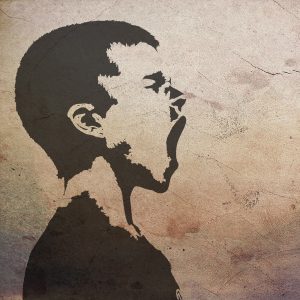
This week has been awful.
The news has been devastating and all consuming. But that feels like it’s becoming the norm.
In Belarus, our friends remain under attack - Andrei and Irina’s trial began on Monday. We have no idea of the outcome.
In Brazil, Dom Phillips and his colleague Bruno Araújo Pereira remain missing – but with reports of fresh blood being found, our hearts break for their loved ones.
In Ukraine, we see daily the death and destruction caused by the Russian invasion, up to 200 Ukrainian soldiers killed a day. And the reports of cholera in Mariupol are beyond my comprehension in the twenty-first century.
In Russia, the crackdown against dissidents continues unabated – with limited coverage. 160 people are currently defending criminal cases for anti-war statements and this week a close associate of Alexei Navalny was tried in absentia and placed on the international wanted list.
In the Philippines, Ferdinand Marcos Jr has been elected as the next President and made his first visit to the US as President-Elect – seemingly the legacy of his parents no longer an electoral or diplomatic issue.
In Hong Kong, six brave democracy protesters were arrested for the temerity of marking the anniversary of Tiananmen Square.
In the US – the inquiry into the Capitol Riot is officially underway – highlighting just how fragile our collective democracy is and how desperately we need to cherish and protect it.
And that’s before I even touch on what is happening in the UK, the ongoing political crises, and the ideologically incoherent approach to freedom of expression protections.
And in too many countries this is now framed through the prism of a cost-of-living crisis as a scale that we haven’t seen for a generation.
My only comfort is that we know what is happening. In a digital age it is very difficult for any leader, however repressive, to completely silence dissent about their domestic actions. The joy of a free press in democratic countries is that it enables us to be informed and to demand more and better – from our own leaders and from those that claim a global role. It enables us to analyse the scale of the threat and to try and prioritise our efforts in assisting those brave enough to stand against tyranny.
Index exists to provide a platform for the persecuted. We work every day with those who refuse to be silenced. The least we can do is listen to them and then join their fight.







 Andrei Soldatov
Andrei Soldatov  Irina Borogan
Irina Borogan Dr Ben Noble
Dr Ben Noble Jemimah Steinfeld
Jemimah Steinfeld